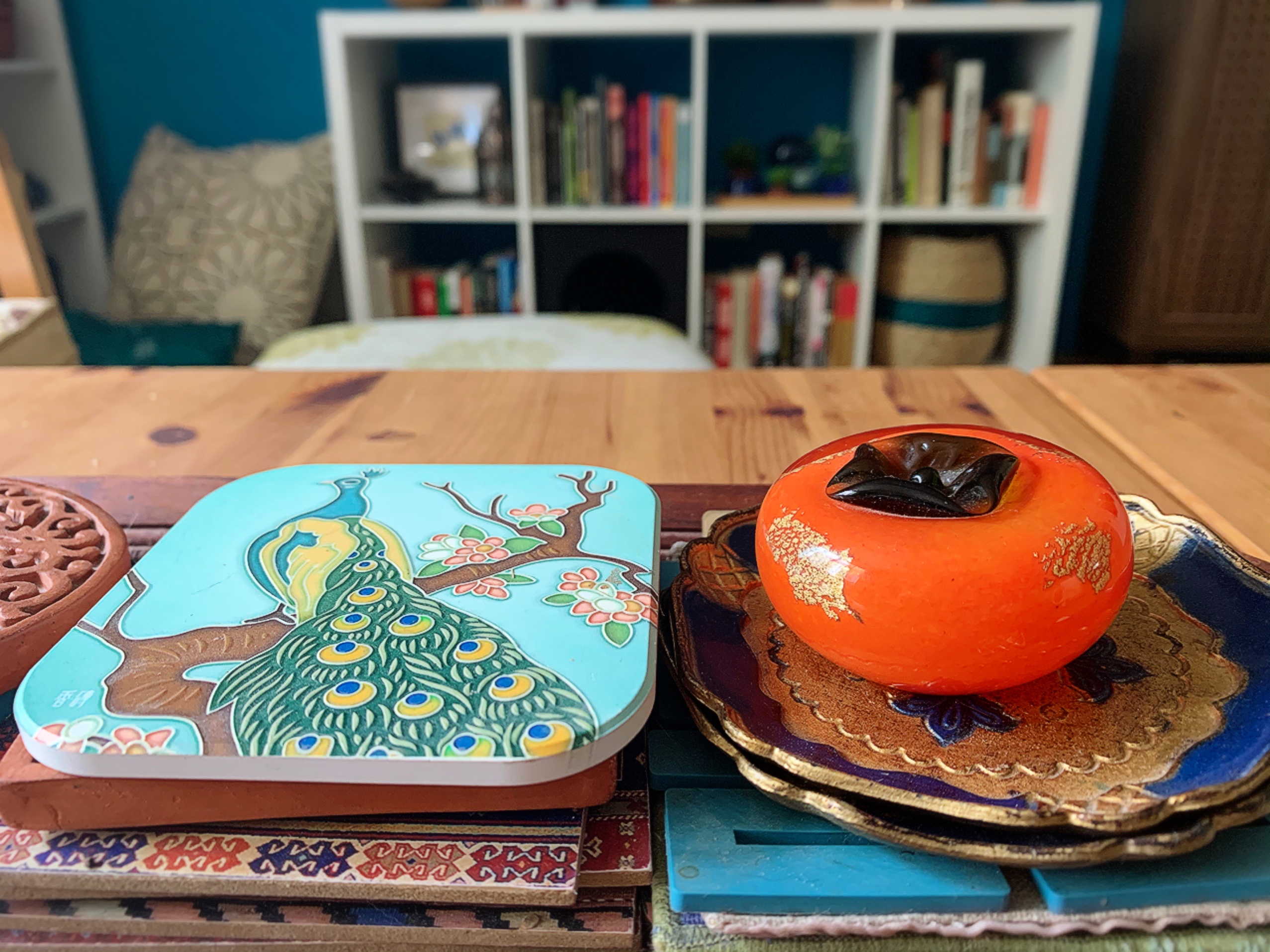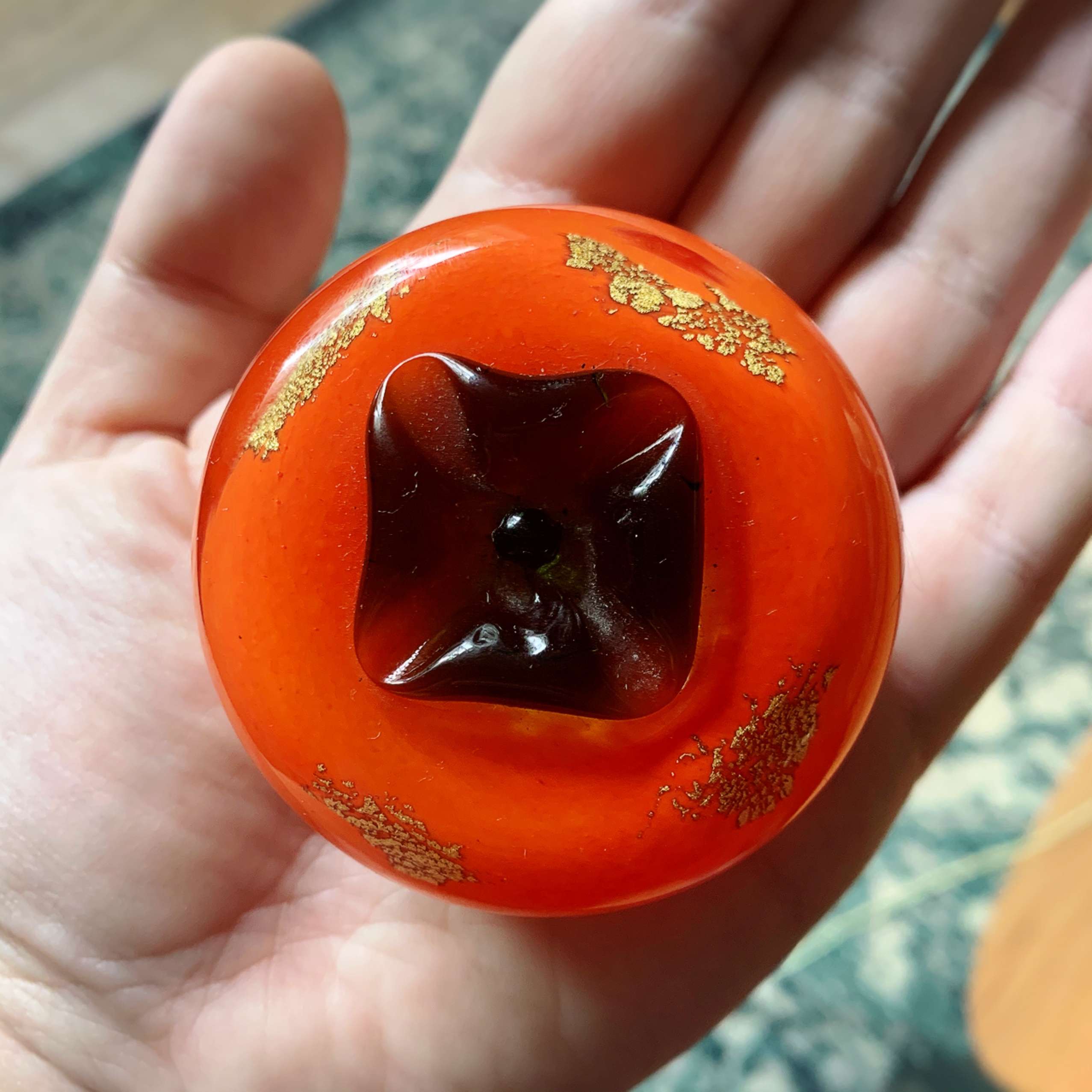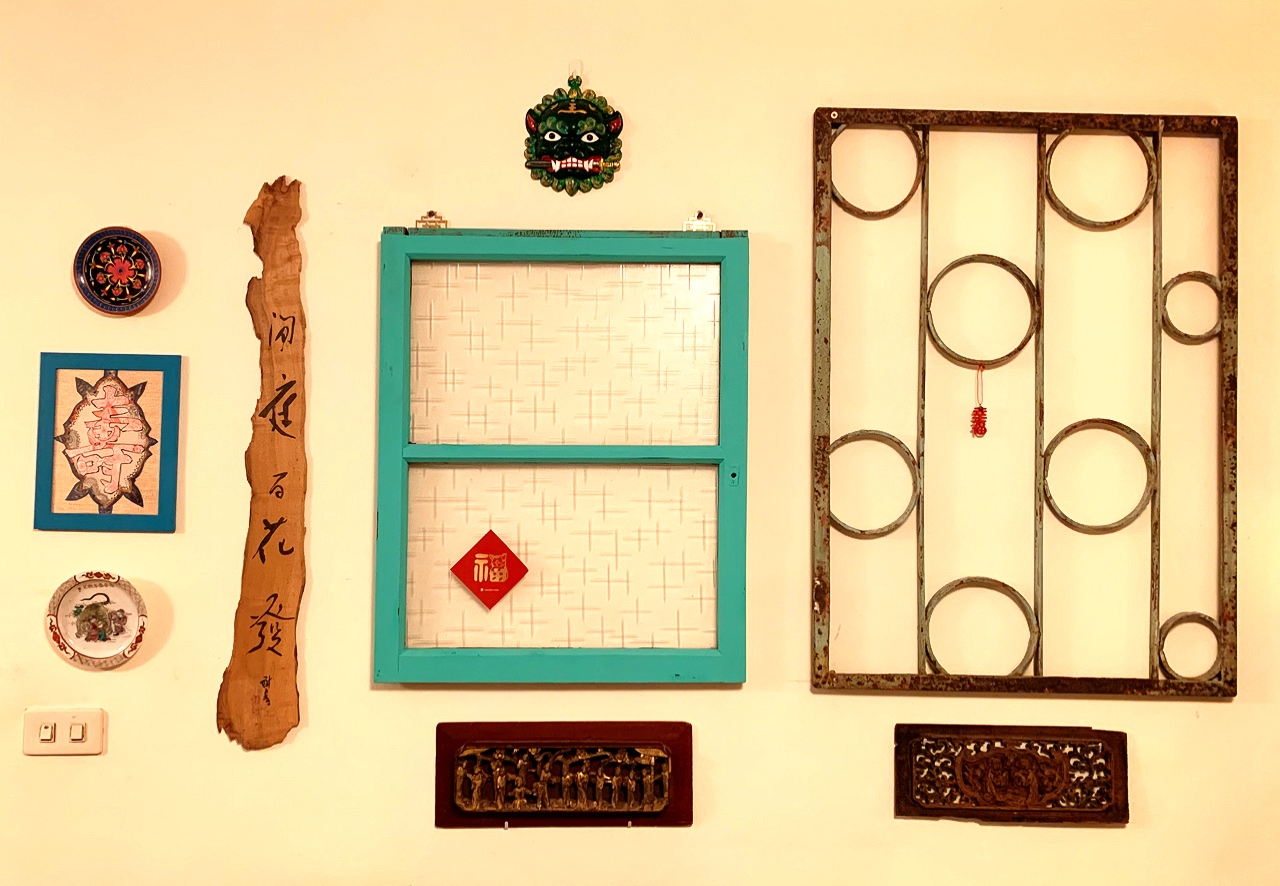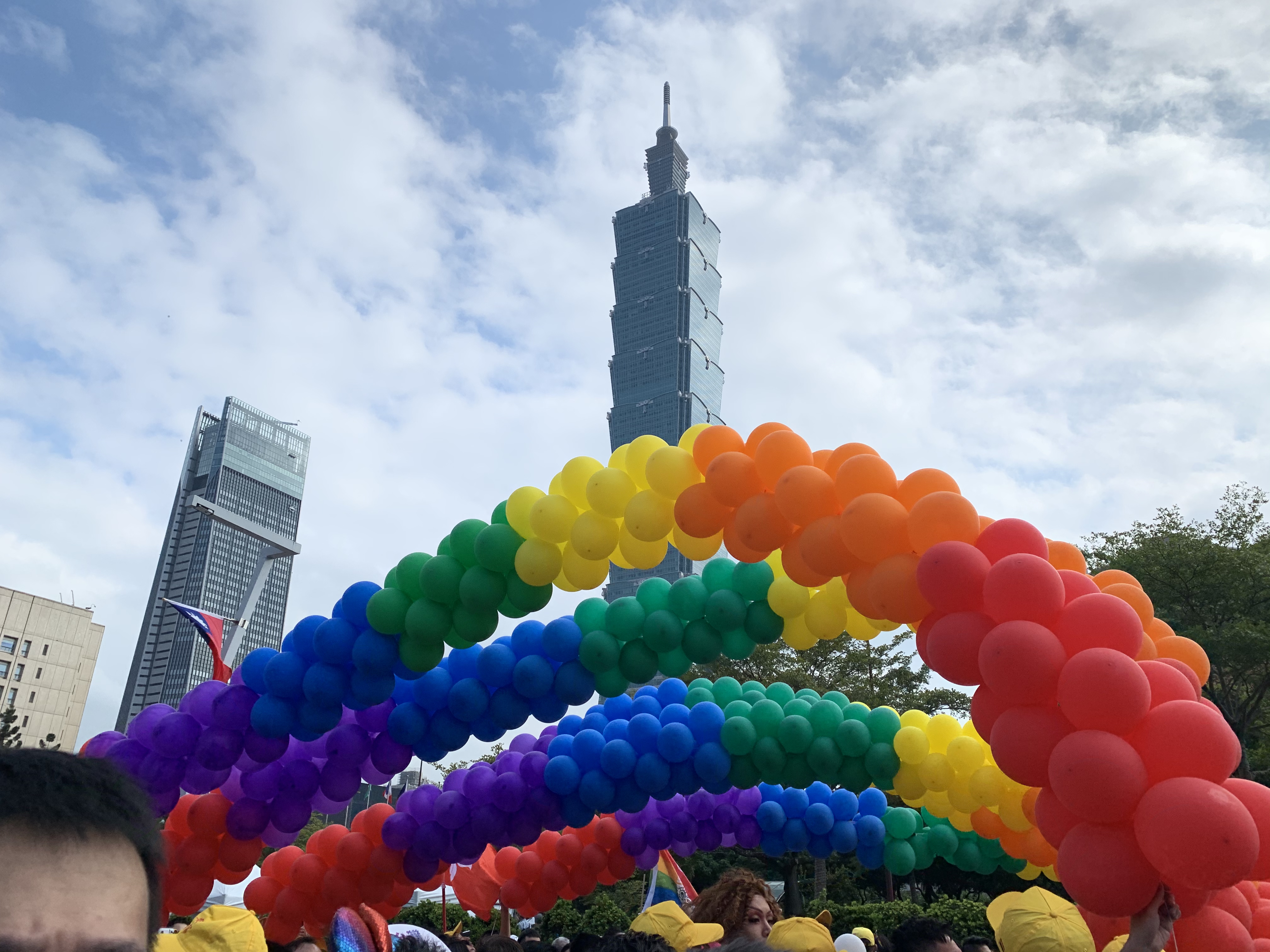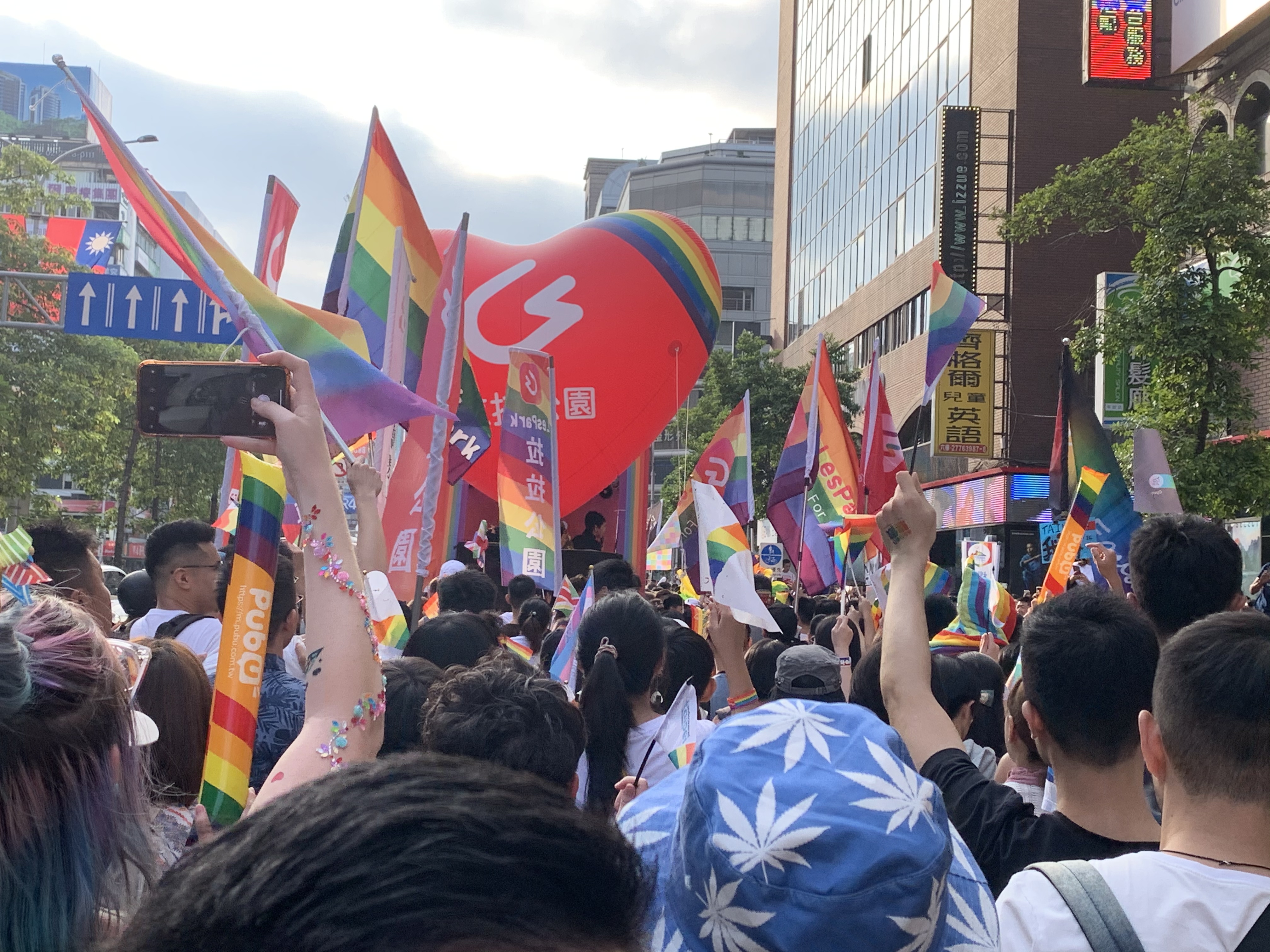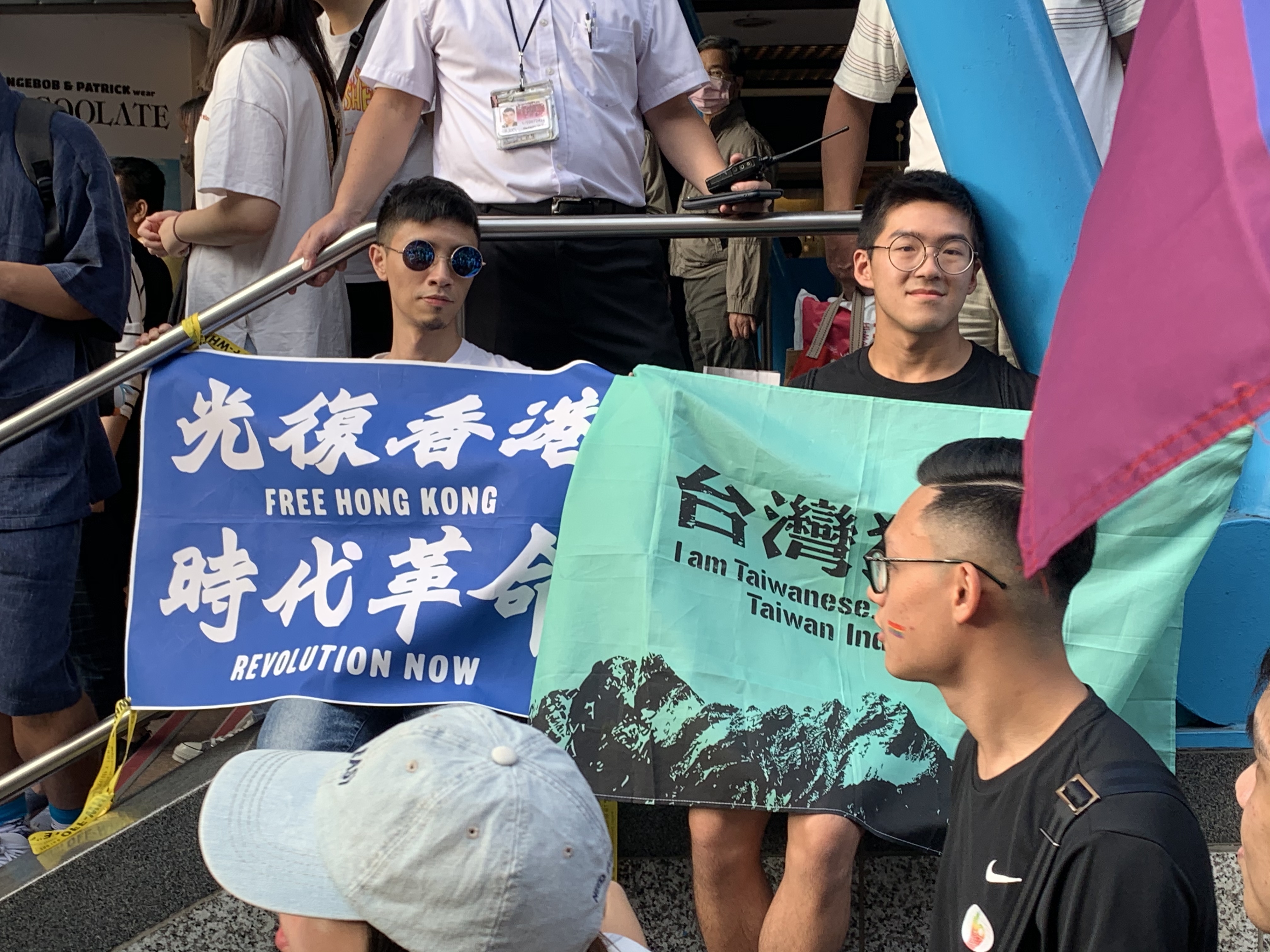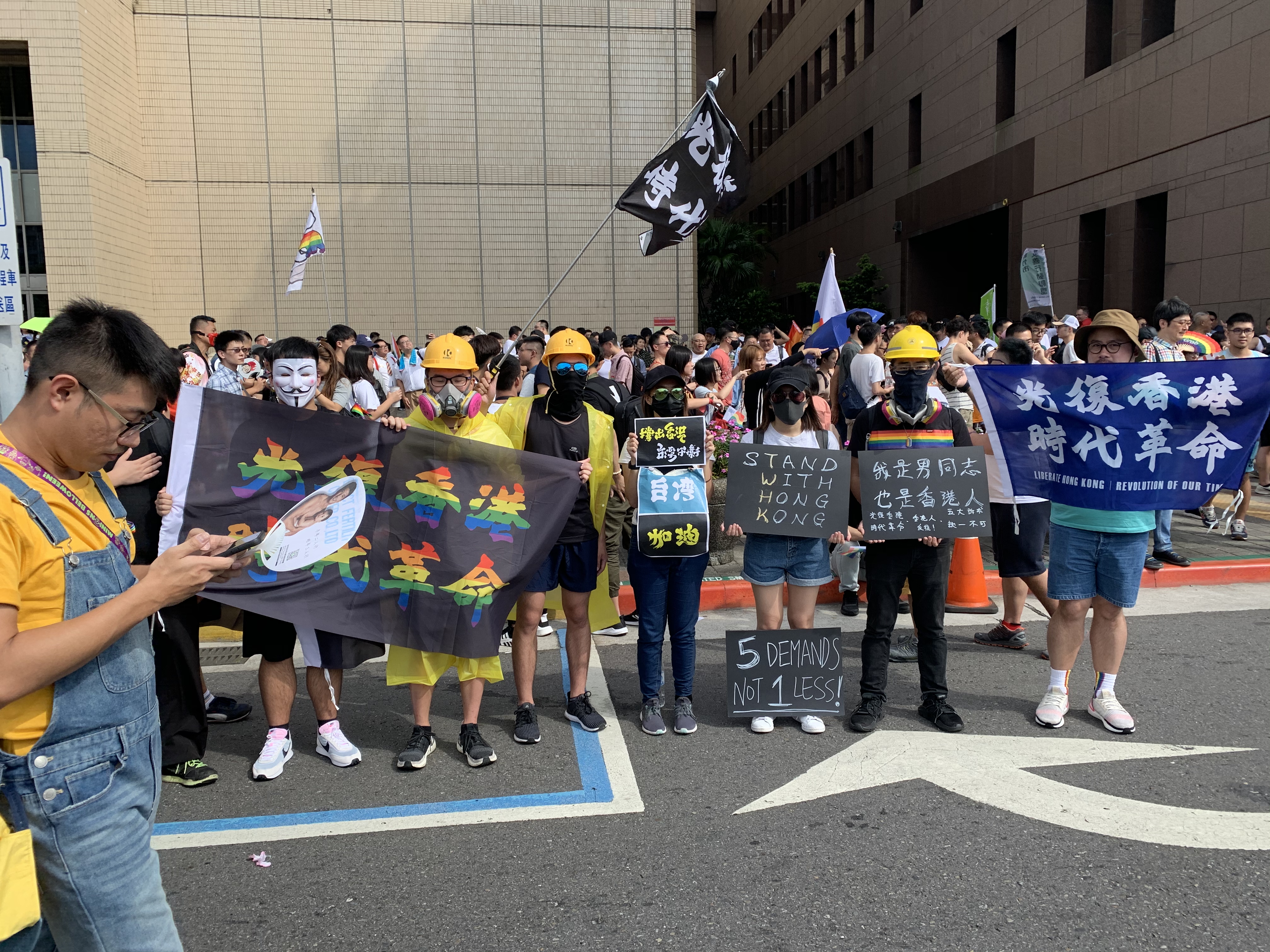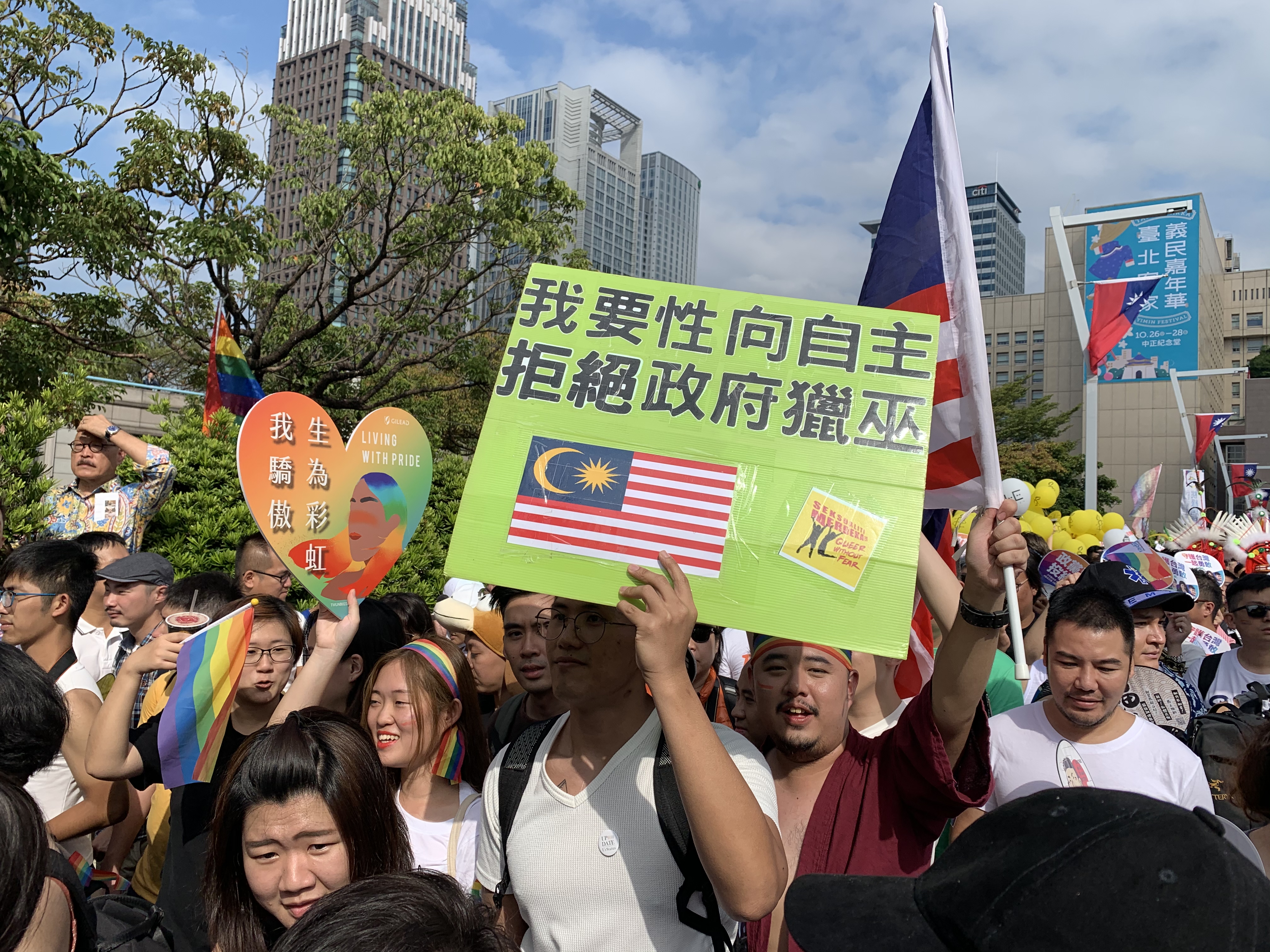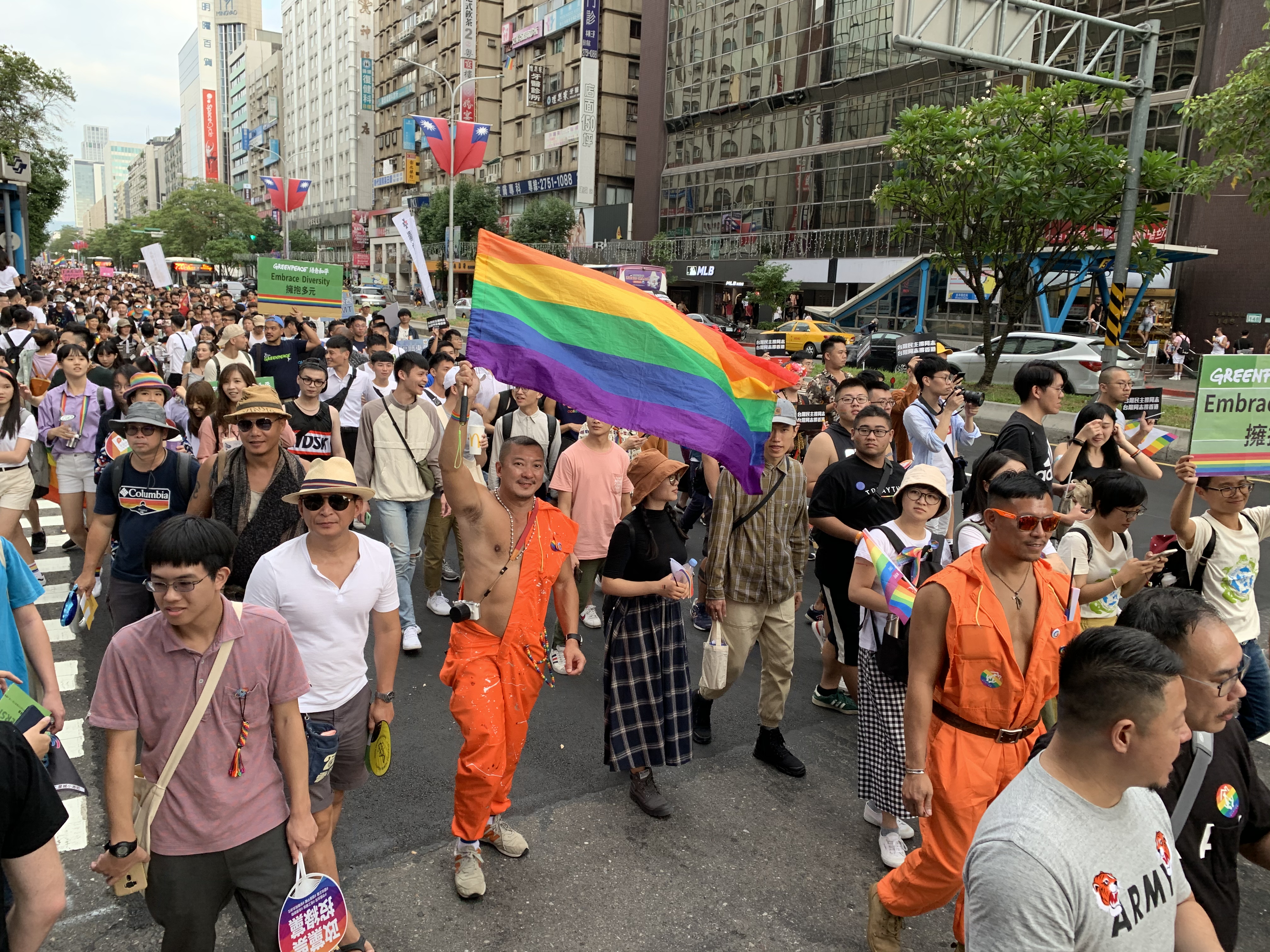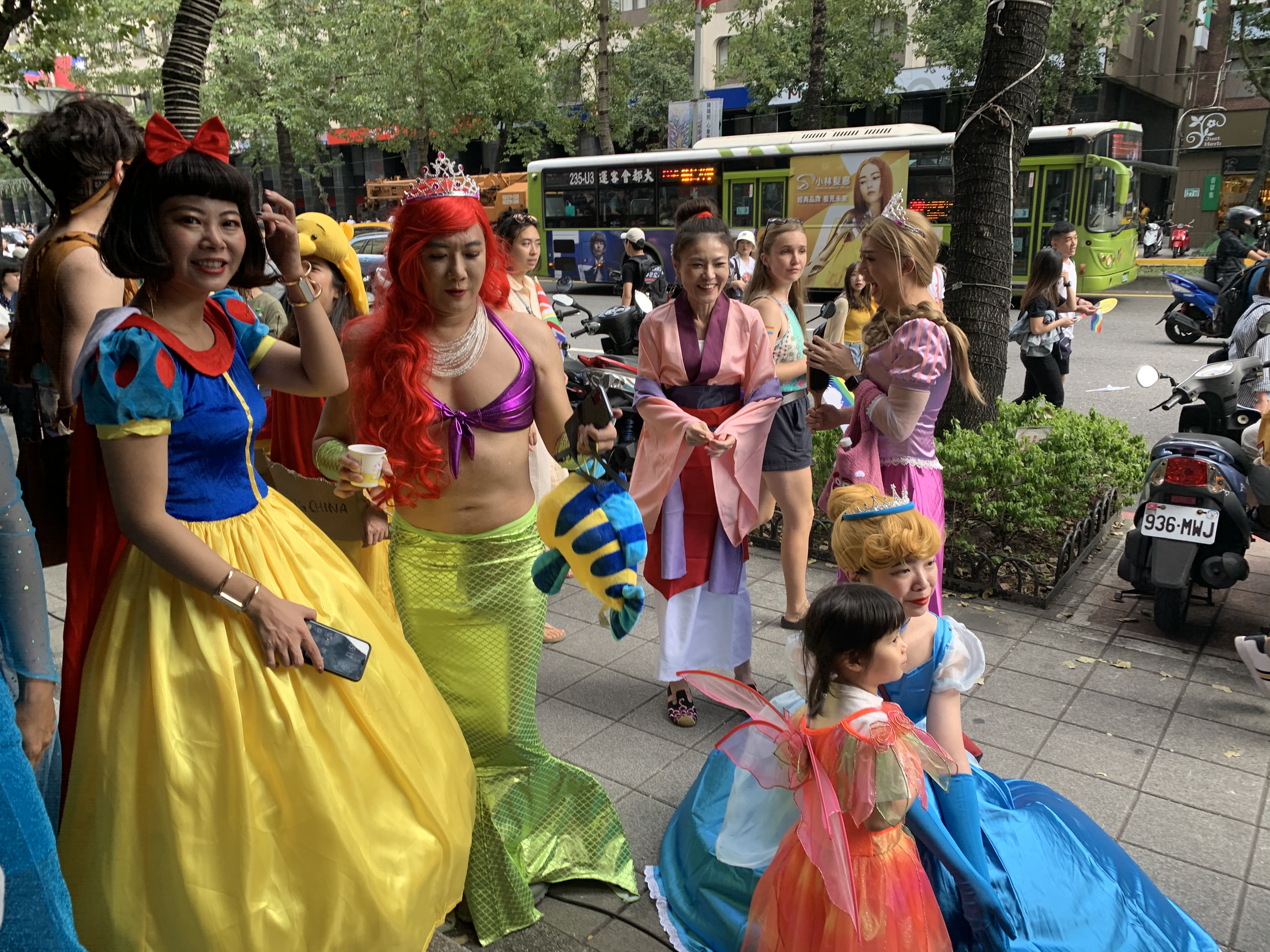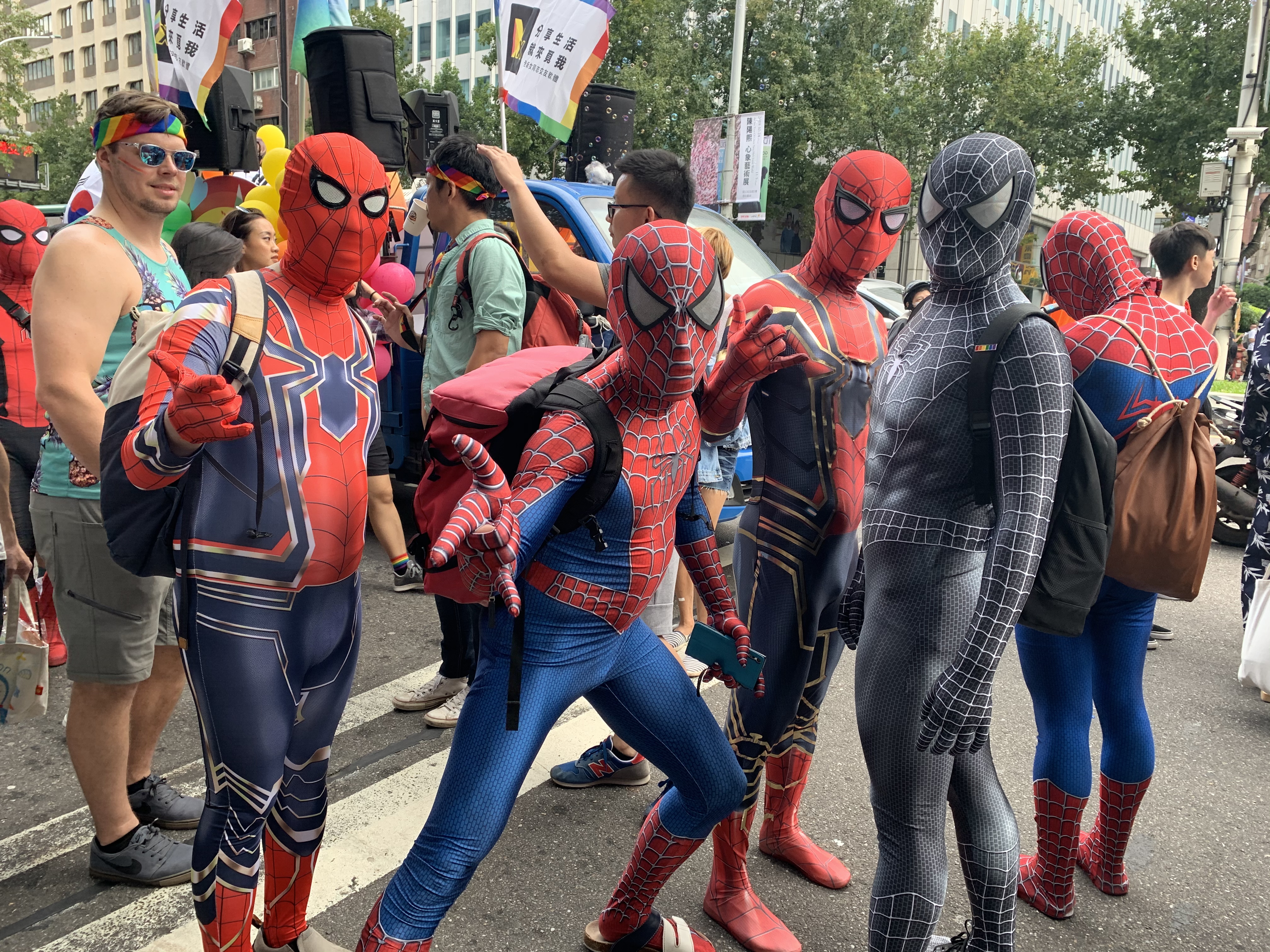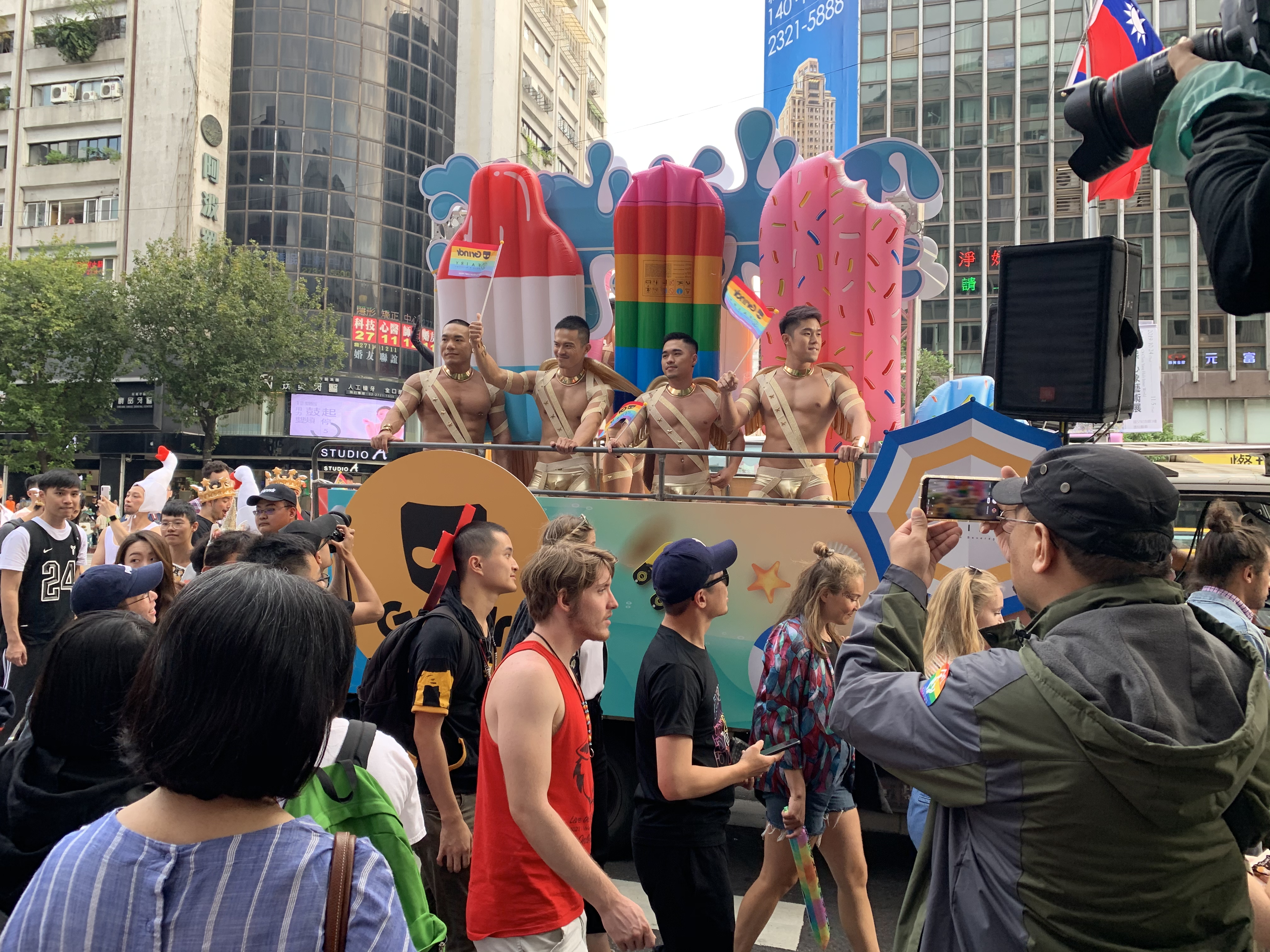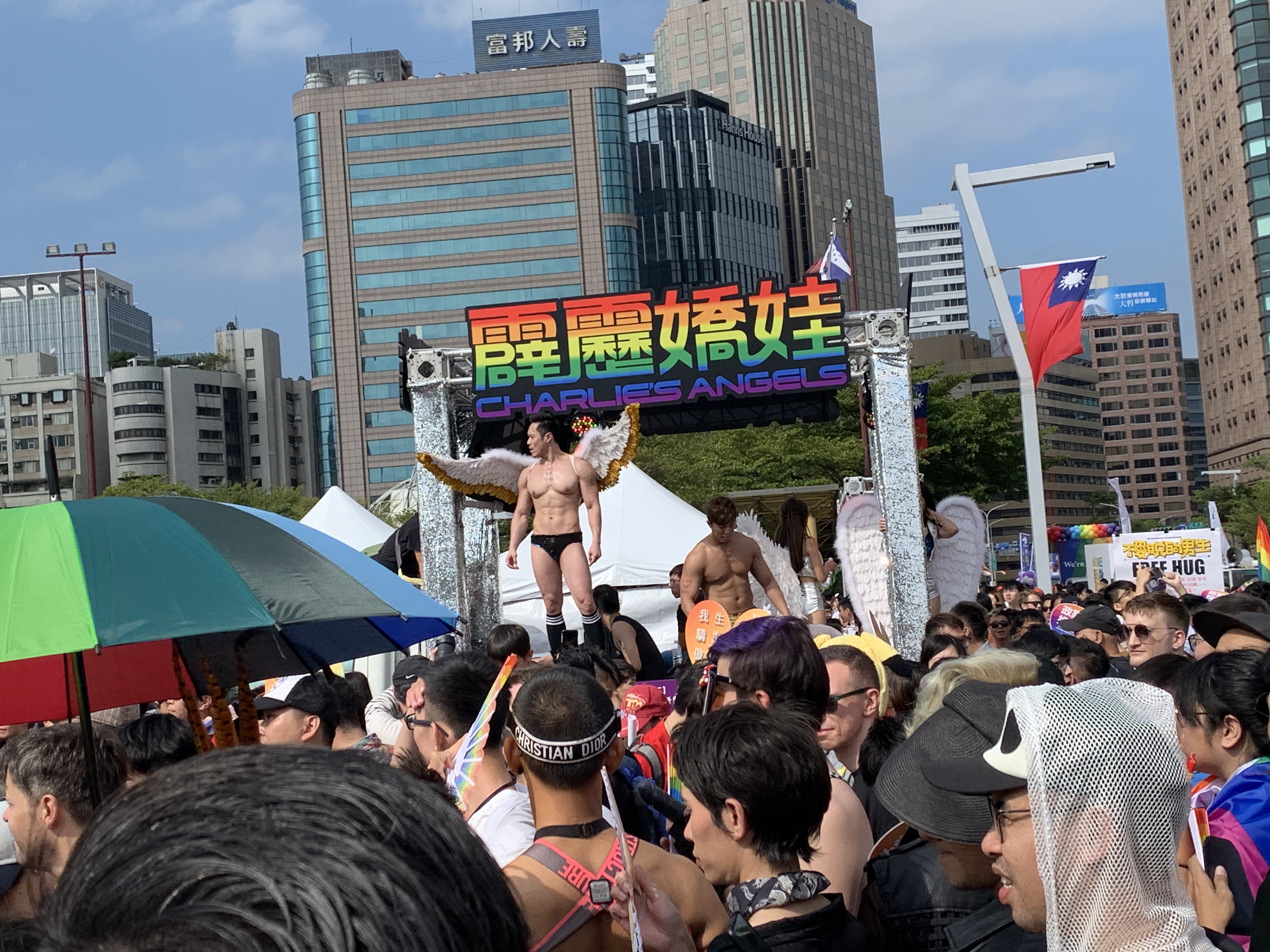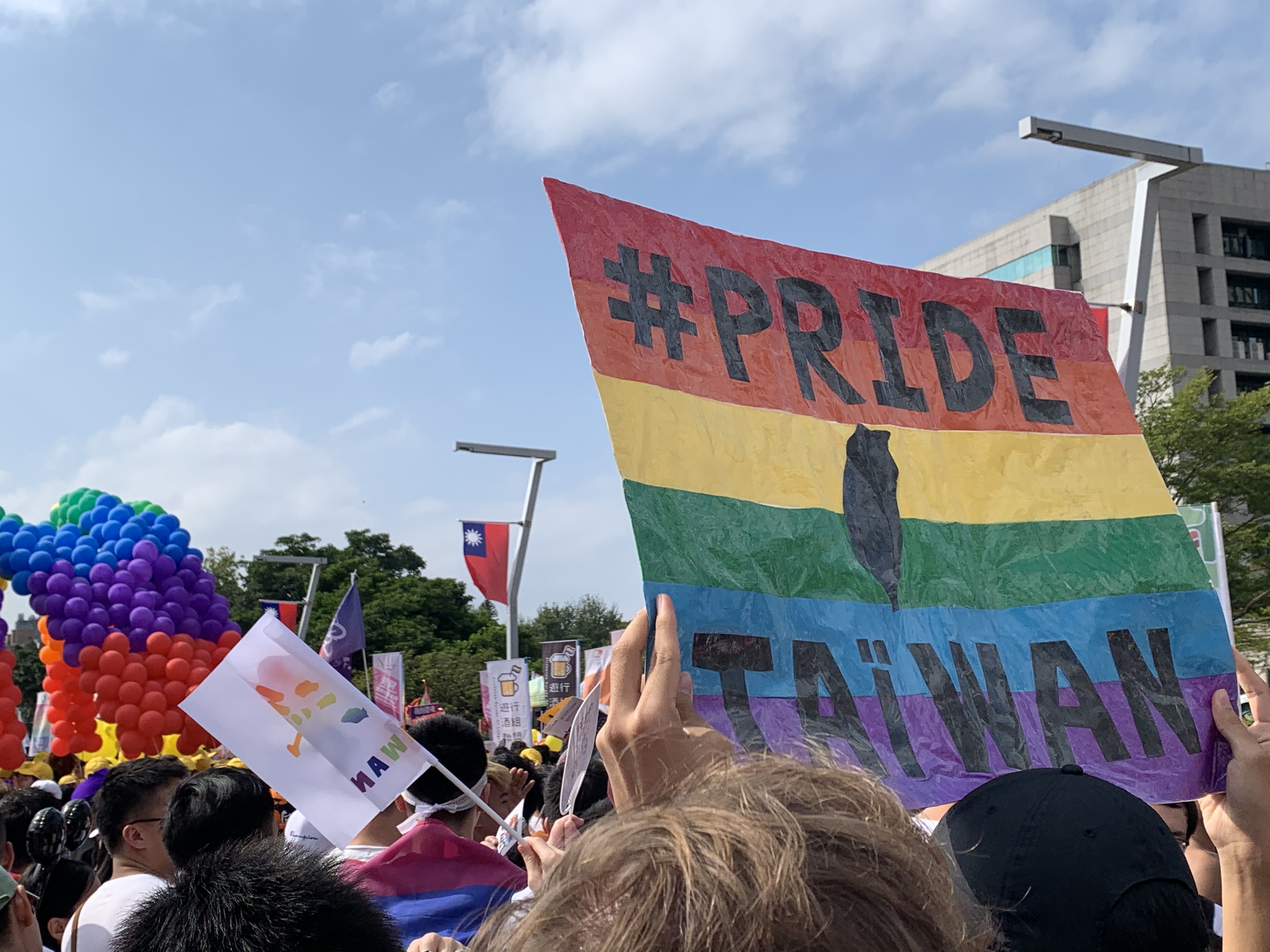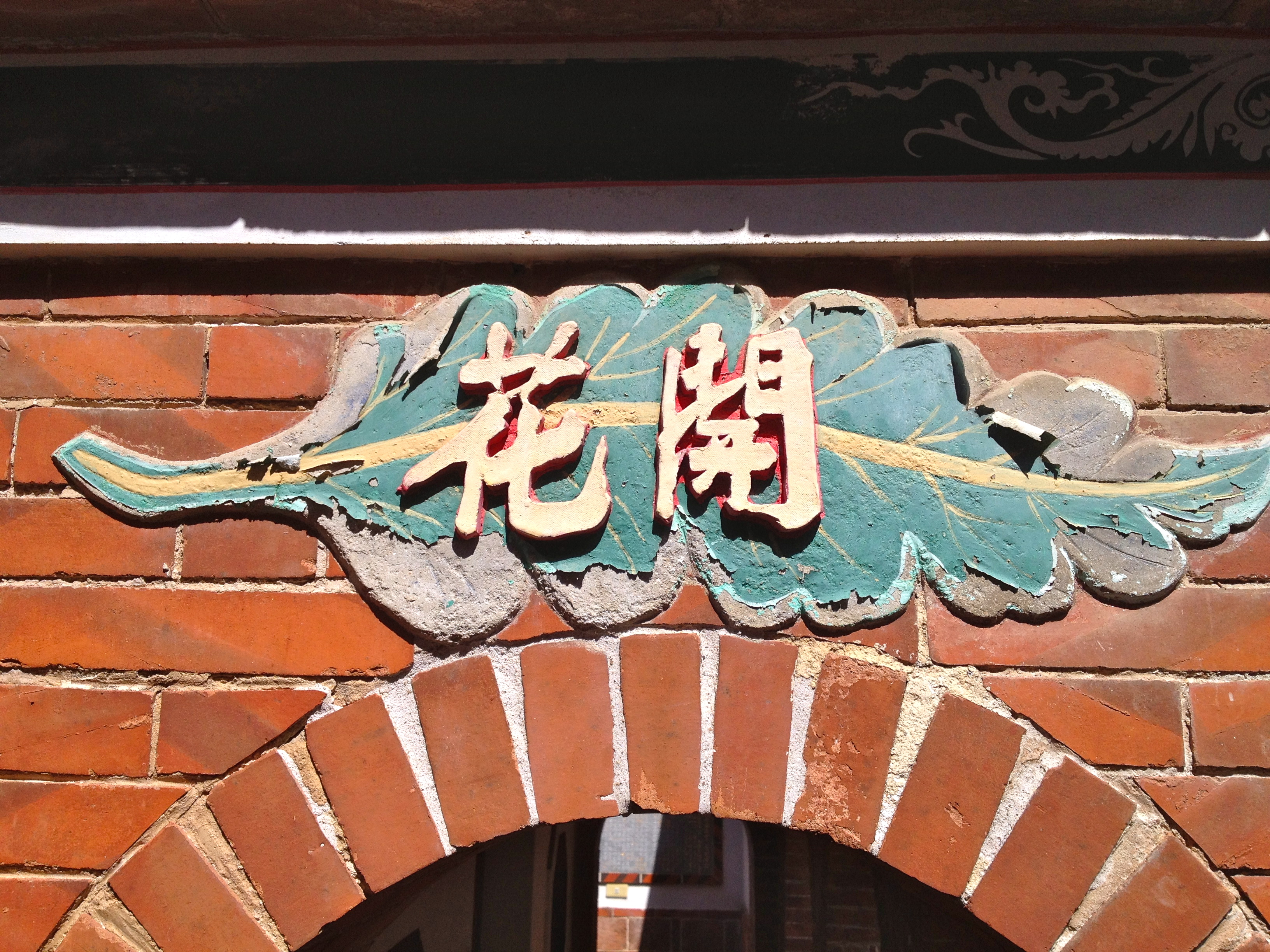
Piggybacking on my last post about abortion, I began to think about the old dichotomy that seems to keep popping up. Given Taiwan’s democratic success and free press, recent legalization of same-sex marriage (note: not marriage equality), the more-or-less progressive-ish track record of the Tsai administration can we call this country a “liberal” one?
Or is the ongoing human rights crisis regarding foreign blue-collar labor, often conservative attitudes of the general public, the ridiculous treatment of female public figures, the continued existence of the death penalty and the criminalization of adultery (now decriminalized!) and the continued lack of options for unilateral no-fault divorce enough to swing it the other way — is Taiwan still a “conservative” country?
Of course, as with most of these “is it A or B?” debates, it mostly seems to be people looking for something to debate. In the end, Taiwan is neither liberal nor conservative, or both liberal and conservative. Honestly, it depends on how you define it.
I do take the liberal viewpoint as the sometimes imperfect but overall superior one; a core tenet of liberalism is to let other people live their lives non-judgmentally and not discriminate against them in any sort of transactional or legal sense.
Early on, I realized the different ways of looking at this needed to be investigated separately. So let's investigate! Why is it reductive to declare Taiwan "liberal" or "conservative" like it's a true-or-false question with one clear answer?
It depends on what you’re comparing it to
If your frame of reference is, say, Europe, it’s fairly easy to proclaim Taiwan “still very conservative”, dust off your hands and be done with it. In Europe, adultery isn’t criminalized, marriage equality is broadly (though not universally) recognized, there is no death penalty, in most places abortion can be obtained on request or very easily, gender equality is generally quite good, and —speaking anecdotally — I often find that moderate to center-liberal Europeans tend to equate to so-called “left-wing” Americans (who are not actually left-wing at all: most are pretty moderate.) Most of Europe also allows unilateral no-fault divorce, although the UK and a few Catholic-majority countries don’t.
I don't know as much about the internal social workings of various European nations, so I'll leave it at that.
If, however, you compare Taiwan to its neighbor states in Asia, you will likely come to a very different conclusion.
In most of Asia, divorce is similarly restricted. No-fault mutual divorce is generally obtainable in other industrialized Asian nations, but mostly banned in the Philippines and very difficult to obtain in some other developing parts of Asia. However, rather like Taiwan, unilateral divorce generally requires proving some sort of fault. Most Asian nations retain the death penalty, even if they don’t exercise it. I can’t find information on some countries, but in Japan and South Korea, spousal consent is still required to obtain an abortion. Along with this, gender equality metrics in most other Asian countries show Taiwan in a favorable light, comparable to Hong Kong and Singapore and ahead of just about everywhere else in Asia.
With changes to adultery laws, the legalization of same-sex marriage and hoped-for changes to abortion access, who can reasonably look at Taiwan compared to the rest of Asia and say it’s “not that liberal”?
Why, if one is inclined to insist that Taiwan remains a conservative nation, does one have to look to the West to validate that view?
But - does it even depend on what you compare it to?
Hold up, though. Let’s look at a few examples from the West. Is it really that much more liberal?
Divorce laws in the UK are broadly similar to Taiwan’s. They don’t have unilateral no-fault divorce either. Spousal consent for abortion is not required, but giving a ‘reason’ is — acceptable reasons are very broadly defined, as in Taiwan. Ending the criminalization of adultery and (probably) making abortion more accessible to married women will still render Taiwanese laws a bit more conservative than their British counterparts, but not by much. The UK will still be ahead due to abolishing the death penalty, which remains popular for some reason in Taiwan. But in what other ways can the UK be said to be “more liberal”?
In some ways, one could say the tie-breaker here are social mores. Public opinion, you might say, is more liberal in the UK. Certainly you would not find a public opinion poll that showed popular support for the criminalization of adultery, legalizing capital punishment and disallowing same-sex marriage. You might point to British society and say that it’s so much more diverse, and that diversity begets a sort of liberal strength.
Sure. I’ll buy that. (Taiwan is also multicultural and multilingual but that diversity is less immediately apparent.)
But I’ll also point out that while it’s nearly impossible to get dual nationality in Taiwan if you don't have the right ancestry, it’s fairly easy to immigrate here, at least for foreign professionals. Even the salary and qualification requirements to do something other than teach English (2 years’ relevant experience or a Master’s degree in anything) are fairly permissive. If you come to Taiwan to study and can get a job offer upon graduation, it’s fairly easy to stay.
Once in the UK, there is a path for most to citizenship. However, it’s extremely hard to actually immigrate to the UK to get that process started. Once there, you might still be kicked out, possibly for deeply unfair reasons. For all that diversity, it seems as though the United Kingdom doesn’t actually want non-British people to settle there.
I would call that a distinctly illiberal view. (In fact, in general, I find my fellow liberals tend to have oddly regressive, even reactionary views on immigration. In non-pandemic times, I consider being pro-immigration to be a fundamentally liberal value.)
Of course, it’s not fair as an American to sit here wagging my finger at the UK.
The US seems to be unable to reconcile the fact that most Americans support abortion rights with the legions of conservative clownwaffles who keep trying to take those rights away. Abolishing the death penalty in the US feels like a faraway dream. Supposedly one of those “more liberal” countries, we (sort of) elected Donald Trump in the same year that Taiwan chose the comparatively liberal and pragmatic Tsai Ing-wen. We only legalized marriage equality a few years ago — look how fast Taiwan moved in comparison. As with the UK, it’s very hard to immigrate to the US. In fact, it’s difficult to immigrate to most Western countries.
You might look at the US and again point to the nation’s visible diversity. Well, I grew up in the US and in most of the country, diversity doesn’t mean mixing. I don’t want to speak for people of color when I haven’t experienced the same things, so all I can say is that many White people I know in the US live in almost exclusively White areas, and for many, there doesn’t appear to be a single non-White person in their circles. I have heard the same sort of conservative or right-wing rhetoric — the same old racist, sexist, anti-LGBT rhetorical trash — in the US as I have in Taiwan. In fact, as I’ve noted before, it seems to be one of the US’s major cultural exports here!
So although adultery is not an offense and unilateral no-fault divorce is possible. But in what other ways can I say the country of my citizenship is more liberal than Taiwan? It’s hard to think of much.
Placing a high importance on making sure all of its citizens have what they need is a core tenet of liberalism for me. In that way the US again fails, with not just high rates of inequality but a total breakdown in the accessibility of quality health care to all but the upper classes. Few in Taiwan would disagree that everyone deserves access to affordable basic health care. In wealth equality generally, Taiwan is comparable to many Western nations.
And of course, the people
Now that I’ve made the country of my birth sound like a terrifying hellscape — which these days, from a distance, it seems to be — remember that there are plenty of liberals, lefties, progressives, radicals, socialists, whatever you want to call them and all of them are slightly different. On both sides, I've met people who challenge assumptions. They could be anyone, from carceral feminists to liberal/leftist activists with misogynist views to people who are pro-healthcare but anti-immigration, to conservatives in every other sense who are finally embracing marriage equality or no longer trying to dictate whether mothers should stay home or return to paid work.
The youth tend liberal, but Young Republicans are a thing. For every BLM activist, there’s surely a Brocktaniel Craigstopher Broseph Dorpington III who is certain he’ll be a senator someday and can't wait to turn his opinions on women's bodies into legislation. My grandparents, when they were alive, always seemed surprised to hear that liberals were a real thing and it wasn’t just me.
My liberal friends always knew that the other side existed — they didn’t live in quite as much of a bubble — but often underestimated exactly how many people really felt that way. That is, after all, part of how we got Trump.
Taiwan is similar. How can you say a whole country is conservative when the youth tend to overwhelmingly support liberal causes (except, for some reason the death penalty, which seems odd...though perhaps not that odd) and then are surprised when those causes meet strong resistance. But how can you say it is liberal when their aunties and grandpas are more likely to vote, though perhaps less overwhelmingly than in the past?
Of course, the aunties and grandpas assume the youth to be a minority of loud kids, perhaps not even realizing that their younger relatives agree with those “other kids”, but have decided it’s easier not to bring it up. Many are traditionally conservative, but some of their views -- such as understanding the fundamental need for universal health care -- would look liberal to your average American.
In other words, for every young urbanite who was shocked to see marriage equality referenda slapped down in 2018, there is someone like the Bread of Life lady in my building who keeps putting up anti-gay brochures and seems surprised when they are taken down.
Both groups are loud, and both can mobilize. One is older and on their way out, but will be engaged voters for several years more. The other has shown they can defeat an attempted pro-China “populist” wave.
It’s very hard for me to say the US is ‘liberal’ or ‘conservative’ when different Americans are, well, so different.
So it is with Taiwan.
What does it mean to be ‘liberal’?
The notion that Western-style liberal/conservative dichotomies have dominated these conversations is not new. When looking at non-Western societies, it’s quite common for someone to point out that notions of ‘freedom’, ‘choice’ and ‘equality’ can look very different through different cultural lenses.
I don’t mean this in the old ‘individualist vs. collectivist’ debate, another binary that I find a bit overstated. People who proclaim some societies ‘individualist’ and others ‘collectivist’ forget that nothing is that polar, gloss over the interplay of personal and collective choices at the individual, small-group and larger social levels. They further tend to blur the very different definitions of ‘individualism’ with ‘individuality’. Just as an ‘individualistic’ European or Brit (sorry, Brits, you’re separate now) can insist that national health care and affordable education are common goods, so can a ‘collectivist’ Taiwanese find their own path and express their individual spirit while caring about society and family.
Instead, let me illustrate this through a series of anecdotes. Although this is now considered a somewhat traditional or even out-dated practice, some men still hand their salary over to their wives, who run the entire household budget and give their husbands ‘allowances’. (This also happens in Japan and the practice might originate there; I’m not sure.) This has led to society as a whole believing that women are good with money. As a result, accounting tends to be a more female-dominated profession, and ask any family business who keeps the books. I bet you a beer it’s likely a woman.
And to think, I grew up in the “more liberal” United States hearing dumb jokes about how women just spend money shopping and a husband might have to cut up his wife’s credit cards because she bought too many purses!
And yet, a 老闆 (laoban) is assumed to be a man, whereas 老闆娘 (laobanniang) can be translated as "female boss" (as though it needs to be a gendered term) or...the boss's wife, even if she's really the boss.
Here’s another one: the Taiwanese government, despite all of its recent progressive leaps, still seems to think that more babies and bigger families are always a good thing, despite the country being already fairly densely populated. And yet, they now seem willing to look at the country’s current abortion laws and realize that they need to be liberalized, without compromising their view that families should have more babies.
I believe (and hope) they see that abortion isn’t what’s stopping people from procreating; that a person who wants to have a child will try to have one, and abortion being more accessible won’t make them change their mind. That encouraging people to have more kids means ensuring a better standard of living, that families have enough time, money and housing to raise children. Do that, and most people will choose to have children. Abortion is a separate issue entirely.
Oh, how I wish I could get anti-abortion politicians and reactionary voters in the US to realize the same thing!
In fact, here's a quick aside: let's jump back to my assertion in the last post that making abortion accessible to unmarried women had nothing to do with giving women choice while valuing the partnership of marriage. We know it's more about which babies are "desirable" to society than about rights, because single people and same-sex married couples who do want children aren't allowed to access fertility treatments.
The government is finally starting to act on improving abortion access, but nobody seems interested in fixing this problem despite it being a protested issue since at least 2016, and probably earlier. So is it acting in a liberal manner, or not? It's hard to say.
I could add more cultural anecdotes from other parts of the world — for example, the fairly liberal stance of Islam on family planning compared to much of the West through history — but they would be cultures I haven’t spent as much time with, and thus would be less informed. However, such examples exist.
The short of it? I don’t think it’s fair to measure Taiwan by a liberal/conservative spectrum informed by Western assumptions, when the way people make sense of the world through a Taiwanese cultural lens is just...different. Sometimes, I think better. In some ways, perhaps not.
This was apparent watching so many otherwise liberal Taiwanese go pro-Trump, who is about as right-wing as it gets (though it's hard to tell how much of this was straight-up malicious trolling, as people seemed more reasonable in real life). I don't agree at all with their reasons -- nobody who thinks Trump's pandemic response is an acceptable price to pay for anything is welcome in my life -- but the reasons did exist. They mostly don't care about our political binaries, so it's not fair to measure Taiwan based on those same binaries.
I’m also not a total cultural relativist; I too have my lines and I too make personal and individual judgement calls. But I am open to conceiving of liberalism in different lights and will criticize or praise individual ideas, not entire belief systems, including my own.
There are people who insist that any and all conservative ideas they don’t like which exist in non-Western societies were put there by colonialism, and decolonization will therefore liberate those societies from such beliefs. I don’t fully believe that; although I occasionally come across examples of this (say, certain aspects of Taiwanese society that seem to have been shaped more by the outside influence of Christianity on ROC politics than on any local cultural norm), it’s far too ‘noble savage’ or Orientalist. In other words, I’m not impressed by ‘every Western idea is bad, every non-Western one is good’. The West has had some pretty good ideas and some atrocious ones. Every society is capable of both, and a whole lot in between. Every society is going to have some ideas we might see as ‘conservative’, and others that could be called ‘liberal’. Taiwan is no different.
What matters is that we recognize that there is no objective yardstick by which to measure any of this, and perhaps it’s wise not to make any sort of proclamations about it.




